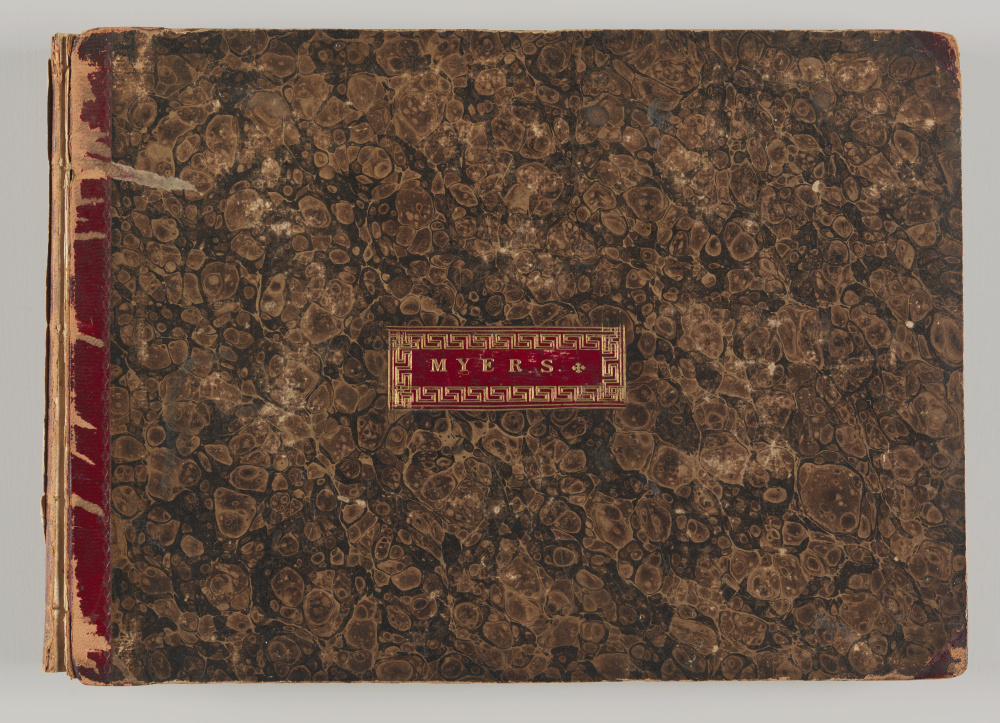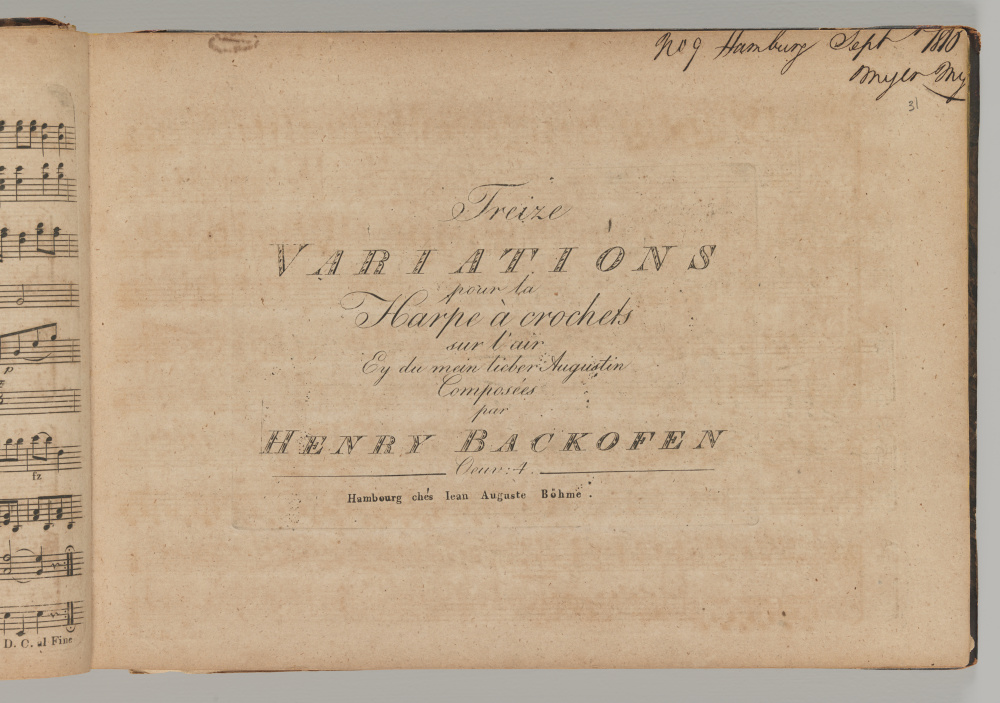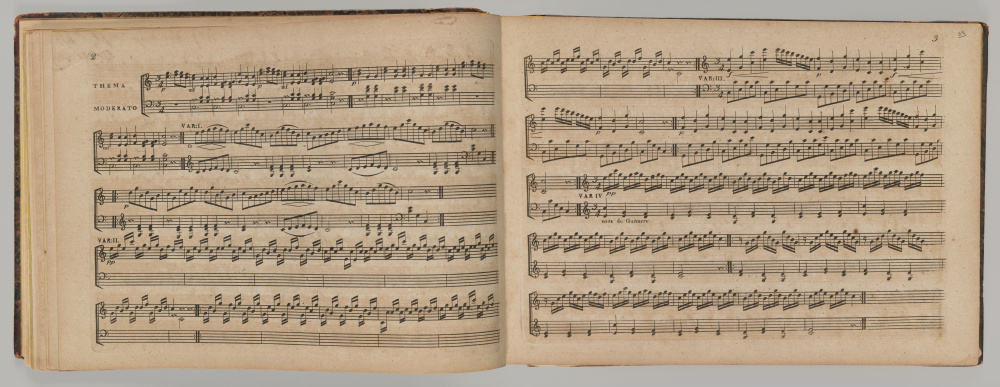- Open today, 10 am to 5 pm.
- Parking & Directions
- Free Admission
Music Collectorship: The Practice of Binder’s Albums in the Early United States
Virginia Whealton, PhD, Assistant Professor of Musicology at Texas Tech University and Deanne Williams, Chrysler Museum of Art
In the United States during the early nineteenth century, music was a beloved pastime for cultured families. Learning to sing and play the piano was an essential part of an accomplished young lady’s education. Considered markers of wealth, education, and good taste, the sheet music collected offers glimpses of their owners’ personalities, joys, and heartaches. The Jean Outland Chrysler Library (JOCL) holds an impressive archive of approximately 1,000 pieces of sheet music from Norfolk resident Moses Myers and his family.

Myers Sheet Music, MM 2007.1, Henry Backofen
A Jewish merchant family with considerable contacts in the Americas and in Europe, the Myers were well-positioned to acquire a diverse collection of music. They settled in Norfolk in 1787. As was typical of the time, the family had pieces of sheet music bound together to create books called “binder’s albums.” These albums provided a way of organizing and protecting music, as well as of showcasing their owners’ wealth and education. They also could serve as gifts or as a way of memorializing a beloved friend or family member.
Adeline Myers collected harp sheet music. Augusta Myers held one of her family’s most eclectic music collections that included glees and solo piano waltzes. Judith Marx Myers’s collection was carefully curated, a memorial gift of music that belonged to a teenage friend who perished in the Richmond Theatre fire of 1811. A fan of American tunes, Georgiana Myers loved to scribble on her sheet music. (Read more about the personalities of the daughters.)
The musical culture of early nineteenth-century Norfolk, Virginia, has received very little scholarly attention. The Myers’ family collection of sheet music offers an unusual glimpse into musical life and tastes in Norfolk, Virginia, during the first decades of the nineteenth century. Their collection also helps build a more complete portrait of the Myers family, revealing their personalities, stories, heartaches, and joys.

Myers Sheet Music, MM 2007.1, Henry Backofen
Virginia Whealton, PhD, a Norfolk native and Assistant Professor of Musicology at Texas Tech University, first learned about the Myers’s collection during a local presentation about sheet music and the civil war. A nineteenth-century music scholar, she delved into the JOCL’s archive and was happily surprised by what she found. “I was really intrigued,” she said. “Seeing the diversity of the collectors in the family and the unusual sorts of music they acquired was wonderful. Also, I found that there are dozens of European pieces right here in Norfolk, yet there’s no longer a record of them in Europe,” Whealton said.
The Myers family collected music from all across Europe including Paris, Amsterdam, and Germany. Through their collecting, they made Norfolk a focal point for music. Want to learn more? Hear fascinating stories about the history of the music and the collectors during The Myers Family’s Sheet Music: Musical Culture in Hampton Roads on Sunday, March 1 at 1 p.m. in the Kaufman Theater. The program will feature a lecture by Whealton and a period dance performance by The Norfolk Towne Assembly. Admission is free.
Select pieces of sheet music from the Myers archive will be on view in the Jean Outland Chrysler Library Reading Room through March 31.

Myers Sheet Music, MM 2007.1, Henry Backofen

